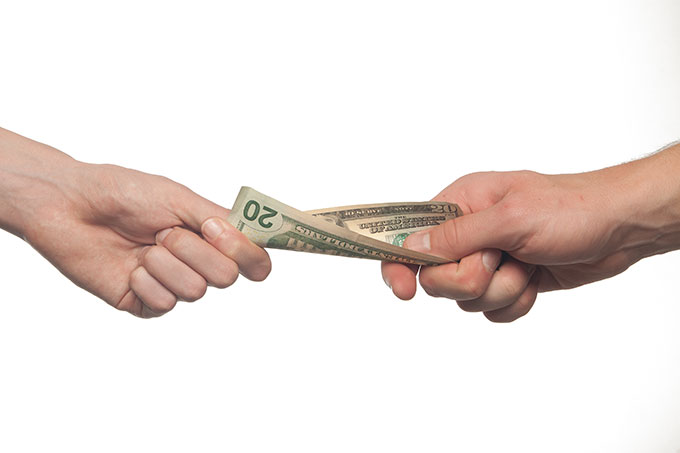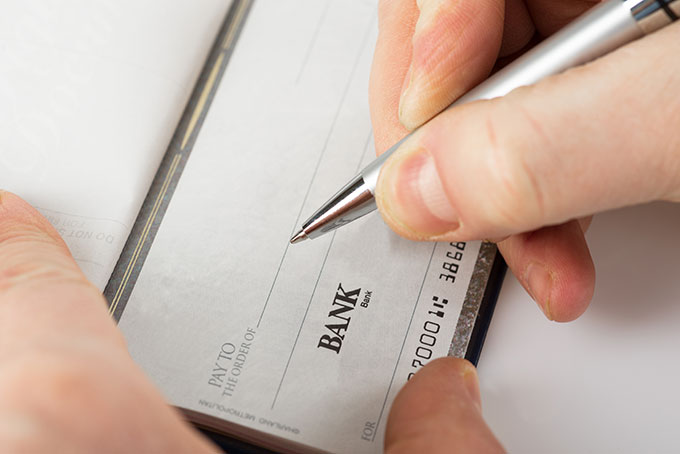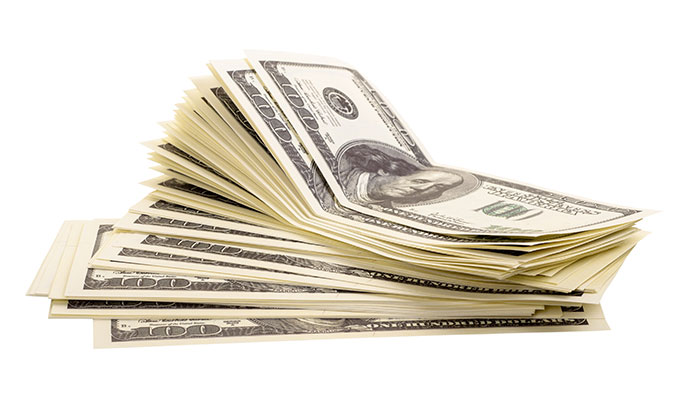
This calculator will show you how much time and money you could save by paying off your debts using the "rollover" method, which is also referred to as the debt snowball method. Using the rollover method, as each smaller debt is paid off, the freed-up payment amount is then applied to the next larger debt, and so on until all debts are paid off. As you are about to see, the rollover method can save you a ton of money in interest charges, and get you debt free in a very short period of time.
Consolidate your debts and save. For your convenience we publish current personal loan rates, HELOC & home equity loan rates & El Monte mortgage refinance rates which you can use to estimate your payments and find a local lender.
Our rate table lists current home equity offers in your area, which you can use to find a local lender or compare against other loan options. From the [loan type] select box you can choose between HELOCs and home equity loans of a 5, 10, 15, 20 or 30 year duration.
The following table shows current El Monte 30-year mortgage rates. You can use the menus to select other loan durations, alter the loan amount, change your down payment, or change your location. More features are available in the advanced drop down.
Some people can handle debt better than others. Some see it as a regular part of life…they have always had debt and always will. A little debt is not unhealthy. A car payment and a mortgage are considered normal. But, beyond that, if you have credit cards payments and installment payments and loans payments, you may be over extended. Do you find there is too much month left at the end of your paycheck? Now might be a good time to use our accelerated debt repayment calculator to put a plan in place to eliminate your debt.
Regardless how you got into this hole, you must face the fact that digging yourself out of it will take sacrifice and determination. But don’t be discouraged, millions have done it before you and have paved the way with tips and advice. Dave Ramsey, get out of debt guru, suggests cutting up your credit cards and using only cash or debit cards. He also suggests to first save a $1,000 emergency fund before working on your debt reduction plan. This is to insure you aren’t tempted to use your credit card in case of an emergency. All it takes is an unexpected car repair or a broken appliance to throw someone back into debt. The emergency fund is ONLY for emergencies. Don’t be tempted to use it for a special dinner or a new pair of shoes. Keep this money accessible in your bank savings account.
To free up extra money in your budget will require spending less than you make. This suggestion may be hard to swallow, especially if you are now barely making ends meet. But, most likely spending more than you make is what got you in this position in the first place. There are so many ways to cut corners. Besides the obvious suggestions of eliminating cable and not eating out, this savings list provides tried and true ways to keep more cash in your pocket. The main rule is to stop spending and throw any extra money towards debt. A part time job may be required to put a bigger dent in the debt. Small jobs like lawn care or babysitting can add up. So can yard sales and selling things you no longer need.

If you need some reading material to motivate you and give you direction, How to Get Out of Debt, Stay Out of Debt, and Live Prosperously by Jerrold Mundis is recommended to put you on track. One of the essential elements to becoming debt free is to know where your money is going, so it’s critical that you track your spending. The first month of tracking will reveal the leaks in your financial bucket and continuing to budget will insure that your money goes where you want it to. If you are seriously in debt and need counseling, make an appointment with your local office of the National Foundation for Credit Counseling. They can help you set up a realistic budget and work with you to eliminate your debt.
Before we get down to the brass tacks of paying your loans off ahead of schedule, there are some key points to consider. Obviously, there are some very clear benefits to early loan repayment, but there are also a few potential pitfalls. While it's only natural to assume that paying off any loan as quickly as possible is the smart thing to do, there are occasions when it can actually work against you. It's worth taking a moment to review some of the advantages, and the disadvantages, of paying off your loans early before you commit to a plan of action.

Becoming debt free is a goal shared by millions of Americans. However, eliminating debt is often easier said than done, and it can be hard to know just how and where to begin.
Paying off your existing loans ahead of schedule is a good first step on your road to financial independence. Of course, it will require some sacrifice on your part, not to mention some careful planning and a fair bit of hard work. But if your ultimate goal is to become debt free, the following strategies will help you to pay off your outstanding loans more quickly so that you can keep more of your hard earned money for your self.

If, after considering the pros and cons of early loan repayment, you decide that you want to start eliminating your outstanding debts as quickly as possible, there are some sure fire strategies to help you accomplish that goal. While these techniques are simple to understand, they are not always easy to put into action. The road to becoming debt free is not necessarily an easy one to travel, and it will require some dedication and sacrifice on your part. That being said, the rewards are substantial and your hard work and determination will definitely pay off in the end.
It's easy to fall into the habit of only making the minimum monthly payments on a loan. After all, it's easier and it doesn't place too much of a burden on your monthly spending habits. But in many ways, only paying the minimum each month is like treading water; you stay afloat but you don't necessarily get anywhere. Moreover, banks and lenders are happiest when you only pay the minimum. It prolongs the life of the loan, and ensures that they make a substantial profit from the interest. If you want to pay off a loan quickly, you need to dedicate yourself to increasing your monthly payments, over and above the stated minimum. Ideally, you should aim to pay twice as much as you normally would each month. This will help you pay down the principal more quickly, ultimately saving you hundreds, if not thousands, of dollars on the accumulated interest. The end result is that you will pay of the loan well ahead of schedule, after which you will have extra cash on hand to put towards other debts or to invest in your savings or retirement plans.
Naturally, you will have to make a few sacrifices to find the extra money needed to substantially increase your monthly payments. You should start by reviewing your household budget, and looking for areas where you can economize. Cut back on any discretionary spending, and earmark that money for your increased loan payments. It will be difficult at first, but once you see the effect paying more than the minimum has on your loan's balance you'll find the sacrifice well worth the effort.
If you can't afford to make more than the minimum monthly payment on your outstanding loans, you might consider cutting those payments in half and submitting them on a bi-weekly basis. On the face of it, this technique may not seem to promise a great deal in the way of results. After all, you are still making the same minimum payment, albeit it two installments. However, a bi-weekly payment schedule can actually do a lot to help you pay off your loan quicker, while saving you some money in the process. Consider the following benefits of a bi-weekly payment strategy:
A bi-weekly payment plan can have some disadvantages, however, and you should always check with your lender beforehand to see if there are any fees or penalties for making extra payments on your loan.

Like bi-weekly payments, this strategy has a greater cumulative effect than you might at first imagine. More importantly, it doesn't require that much of an increase in your regular monthly payments before you start to see results. For example, let's say that the minimum monthly payment on one of your outstanding loans is $259.18. If you round that up to $300, you'll only be paying an extra $40.82 per month, or a little more than $10 per week (the cost of a couple of lattes at the local coffee shop). While that may not look like too much at first, over the course of 12 months it adds up to $489.84, which is just shy of two extra payments per year. Over time, you will not only significantly shorten the life of your loan, but you'll save money on the accumulated interest as well.
If you have a number of outstanding loans, one of the most effective strategies for dealing with them all is the debt snowball technique. With the debt snowball method, you focus the bulk of your attention, and your available extra funds, on eliminating your smallest debt first. This will require you to make extra payments, or to bump up your minimum payments, on your smallest debt while maintaining the minimum payments due on all of your other loans. Once the smallest loan is paid off, you take the amount you were paying on that loan, and add it to the minimum payment you have been making on your next smallest loan. You continue this pattern which each loan, until all of your debts are paid. The debt snowball strategy can be tricky at first, and there will be some financial pressure from the outset. However, as each debt is paid off, your money will begin to work harder for you, and the process will move more quickly as it gathers momentum, just as a snowball gathers snow as it rolls down a mountainside.
Applying for yet another loan while you're trying to reduce your overall debt profile may sound like a strange suggestion, but there is a method to the madness. If you own your own home, and have accumulated sufficient equity throughout the years, you might consider taking out a home equity loan. With a home equity loan you can pay off all of your outstanding debts, and be left with a single more manageable loan. True, you are exchanging a group of smaller loans for one large loan, but in the long run this can actually save you a considerable amount of money. Home equity loans are famous for their low interest rates, and trading a number of high interest loans for one low interest loan will ultimately reduce the total cost of your outstanding debt. One unfortunate aspect is that interest paid on a home equity loan is no longer tax deductible.
Of course, there are pitfalls to be aware of when it comes to using a home equity loan to pay off your existing debt. Your home will be used as collateral for your loan, and if you default on your payments your lender may seize your property. As with any loan, you should proceed with caution and fully investigate your options and responsibilities as a borrower.
Again, it may seem counter intuitive to take out yet another loan when you are trying to eliminate your existing debt. Still, in extreme circumstances, if you have a whole life policy with a substantial cash value you might consider borrowing against the equity in your life insurance to pay off some, or all, of your outstanding loans. However, this can be a dangerous strategy. True, the interest rates on loans made against life insurance policies are typically lower than those on commercial loans, and that can save you money in the long term. But if you fail to keep up your payments, any unpaid interest will be added to the principal and will be subject to compounding. Ultimately, you could lose all of the equity you have built up in your life insurance policy, and your dependents could be left with nothing in the event of your death.
Finally, if your outstanding debt has become too much for you to manage, and you are facing bankruptcy, you can try to renegotiate the terms of your loans with your creditors. Admittedly, this is something of a last resort. But creditors live in fear of their clients filing for bankruptcy, and it is in their best interest to renegotiate your loan rather than write it off as a total loss. If your creditors are willing to negotiate, ask for a lower interest rate and a more forgiving repayment schedule. If they agree, devote all of your energy and finances to paying off the debt as soon as possible, and then take the necessary steps to rebuild your financial security.
Becoming debt free is an admirable goal, and while at first the process may seem daunting that goal is not unattainable. If you apply yourself wholeheartedly to the problem at hand, and make the necessary sacrifices, you can slowly but surely eliminate the bulk of your outstanding loans. It will take time, and it will take hard work. But it can be done. The 7 strategies we've outline here are effective methods that you can use to pay off your loans ahead of schedule, so you can get out from under the burden of excessive debt and reclaim your financial independence.
Explore conventional mortgages, FHA loans, USDA loans, and VA loans to find out which option is right for you.
Check your options with a trusted El Monte lender.
Answer a few questions below and connect with a lender who can help you save today!